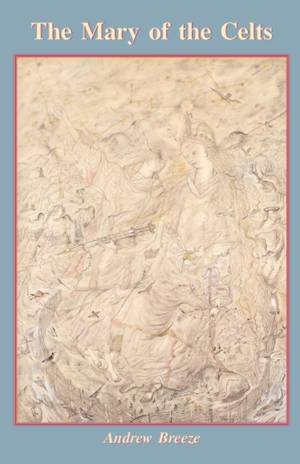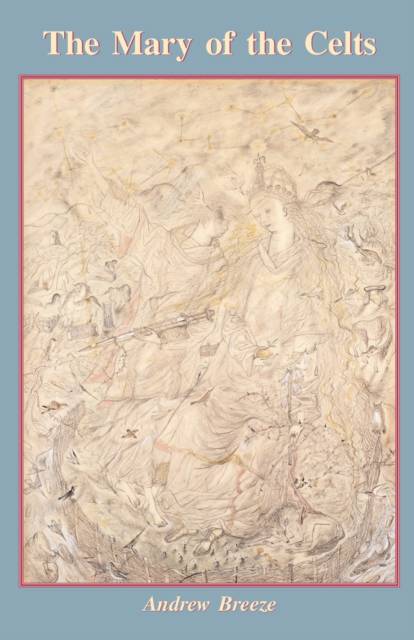
Je cadeautjes zeker op tijd in huis hebben voor de feestdagen? Kom langs in onze winkels en vind het perfecte geschenk!
- Afhalen na 1 uur in een winkel met voorraad
- Gratis thuislevering in België vanaf € 30
- Ruim aanbod met 7 miljoen producten
Je cadeautjes zeker op tijd in huis hebben voor de feestdagen? Kom langs in onze winkels en vind het perfecte geschenk!
- Afhalen na 1 uur in een winkel met voorraad
- Gratis thuislevering in België vanaf € 30
- Ruim aanbod met 7 miljoen producten
Zoeken
Omschrijving
The Mary of the Celts is essential reading for anyone interested in the reality of devotion to the Blessed Virgin Mary in Celtic spirituality. The book explores themes and images associated with the Annunciation, Nativity, Crucifixion, and Assumption, as also the Blessed Virgin's Joys and Sorrows, through a detailed study of poetry on Mary from the Celtic regions of medieval Britain and Ireland. There are haunting images such as the Blessed Virgin Mary as daughter of her Son and as the chamber of the Trinity, with her virginity remaining as unstained and pure as glass pierced by a beam of light, as well as references to popular apocryphal legends, including those of the Instantaneous Harvest that grew while Mary and her child were fleeing into Egypt from Herod's men, and of the girdle thrown down by the Virgin to St Thomas at the Assumption. Amongst the many poets encountered are Muiredeach Albanach, a thirteenth-century Irishman who established a dynasty of poets in the Western Isles of Scotland, and his Welsh contemporary Brother Madog ap Gwallter, whose poem on Mary and her child at Bethlehem has been praised for a Franciscan simplicity and freshness. Taking the original verse in Middle and Early Modern Irish, Middle Welsh, and Middle Cornish (from medieval Cornish drama), Andrew Breeze relates their characteristic images to patristic material, other vernacular poetry (especially in Old and Middle English), Latin hymns, and medieval painting and sculpture. Indeed, The Mary of the Celts has been written as a guide to Marian iconography. It will be useful for students of medieval European literature and art, as well as for specialists in early Irish and Welsh, all of whom will find in it much that is new. It should make readers aware of the wealth of Marian material to be found in Celtic Ireland and Britain, not all of which has had the attention it deserves beyond the Celtic lands. In reviewing Andrew Breeze's Medieval Welsh Literature, Dr Jerry Hunter of the University of Wales wrote in The Times Literary Supplement, 'he has succeeded where generations of scholars have failed'. The Mary of the Celts is likely to have a similar warm welcome from all those concerned with the Marian devotion of the Middle Ages in the Celtic lands and beyond. Dr Andrew Breeze (b. 1954), FSA, FRHistS, was educated at Sir Roger Manwood's Grammar School and the Universities of Oxford and Cambridge. Married with six children, he has been lecturer in English since 1987 at the University of Navarre, Pamplona. Besides numerous research papers on philology, he is the author of the controversial study Medieval Welsh Literature (Dublin, 1997) and co-author with Professor Richard Coates of Celtic Voices, English Places (Stamford, 2000).
Specificaties
Betrokkenen
- Auteur(s):
- Uitgeverij:
Inhoud
- Aantal bladzijden:
- 192
- Taal:
- Engels
Eigenschappen
- Productcode (EAN):
- 9780852446829
- Verschijningsdatum:
- 17/07/2008
- Uitvoering:
- Paperback
- Formaat:
- Trade paperback (VS)
- Afmetingen:
- 140 mm x 216 mm
- Gewicht:
- 249 g

Alleen bij Standaard Boekhandel
+ 27 punten op je klantenkaart van Standaard Boekhandel
Beoordelingen
We publiceren alleen reviews die voldoen aan de voorwaarden voor reviews. Bekijk onze voorwaarden voor reviews.









